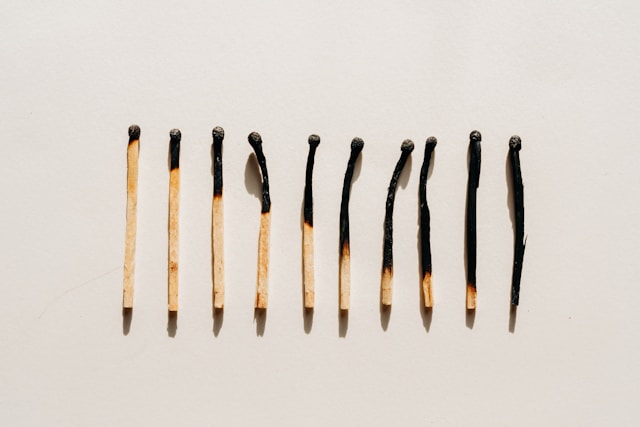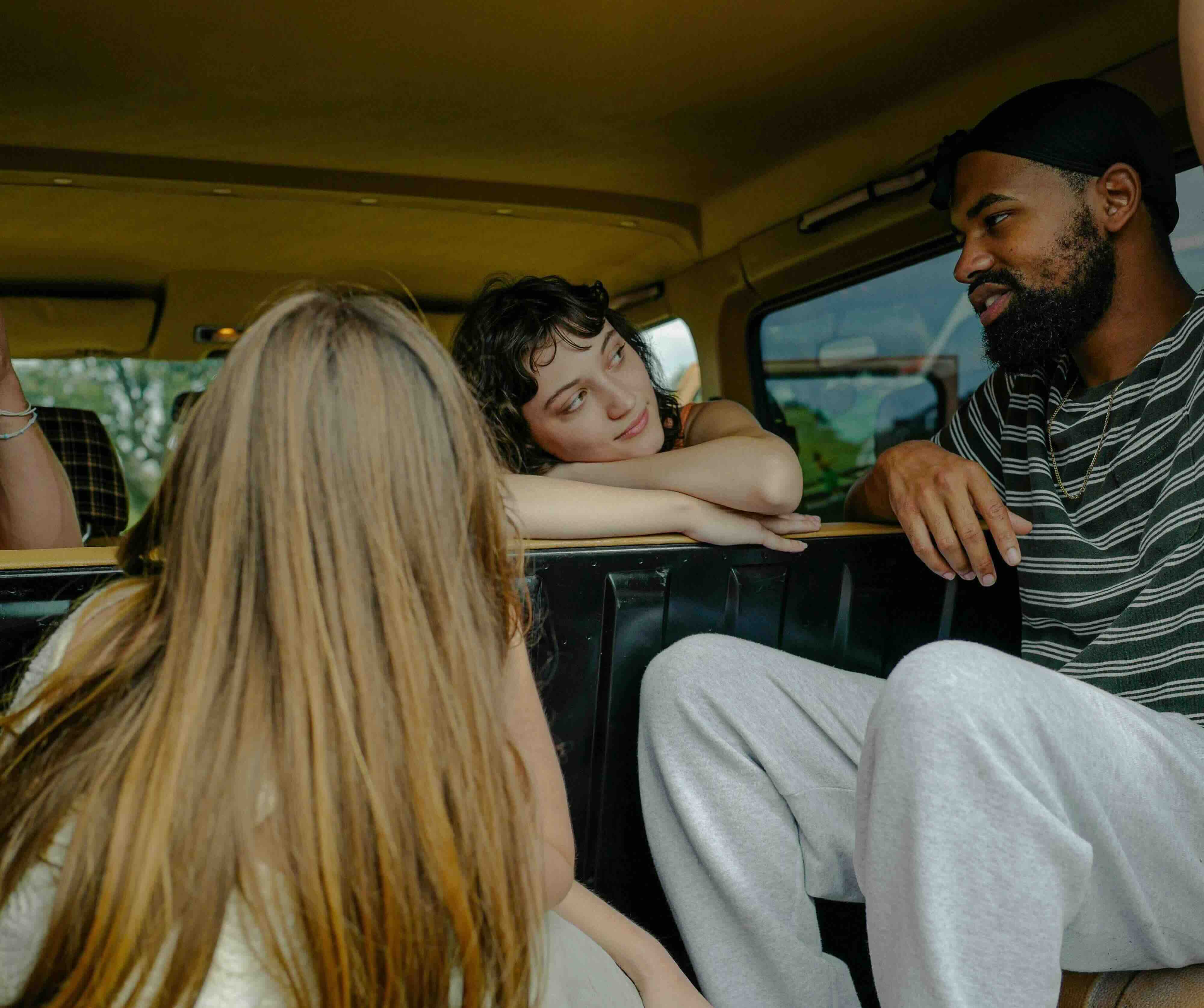10 Celebrities Who Make Mental Health Conversations Feel Normal (Because They Are)

Celebrities Open About Mental Health Struggles
In the not-too-distant past, celebrities were the go-to source for things like style inspo, restaurant recs, home decor trends, and which 9-step skincare routine might finally fix your face. And while all of that is still fun (and still clogging up our feeds), there’s been a welcome shift happening.
These days, more and more public figures are using their platforms not just to promote their latest project or vitamin water brand, but they're open about their mental health. If you're curious about famous people with anxiety, or celebrities with depression, or full-blown burnout, these celebs are showing up with honesty and vulnerability, and in doing so, they’re helping to destigmatize the conversation for the rest of us.
We’ve come a long way from the “don’t ask, don’t tell” approach to therapy. So in honor of that progress, here are 10 celebrities who are open about mental health—and proving that fame doesn’t make you immune to the struggle.
1. Pedro Pascal
You may know Pedro Pascal as the rugged protector in The Last of Us, or maybe as a viral internet sensation with killer dance moves. But behind the fame, Pascal deals with something incredibly common: anxiety.
According to the ADAA, it’s the most common mental health condition in the U.S. Instead of hiding it, Pascal gets real—he’s even talked about how he often places his hand on his stomach because that’s where he physically feels his anxiety. Fame doesn’t cancel out feeling overwhelmed, and Pedro’s openness is a good example that being human comes first.
2. Harry Styles
He sings about fruit and wears boas like a boss, but Harry Styles also deals with anxiety—and has for years. He’s talked about how therapy helped him stop bottling things up and start actually feeling things, instead of coasting through them (annoying, but necessary). He’s also into meditation, slowing down, and yes—he’s even the voice of a bedtime story on the Calm app. If your mental health plan includes lying down and listening to Harry whisper, hey—it’s a good start.
3. Simone Biles
Simone Biles may be the greatest gymnast of all time, but even G.O.A.T.s need to care for their mental health. She withdrew from the 2020 Olympics to prioritize hers, and has spoken publicly about her experience with anxiety, panic attacks, and ADHD. After her ADHD diagnosis was leaked, Biles responded with pride—not shame. She’s embraced her ADHD, saying it helps her stay focused and energized. Some even call it her superpower. And honestly? They might be right.

4. Pete Davidson
Whether you think of him as an SNL alum or Kim Kardashian’s ex, Pete Davidson has been just as open about his mental health as he is about his love life. He lives with Borderline Personality Disorder and PTSD, and has been in and out of mental health facilities since he was a kid. He talks about depression and suicidal thoughts openly—and credits therapy, supportive people, and daily habits (like sunshine and walks) with keeping him grounded.
5. Lady Gaga
Actress. Icon. Voice of a generation. Lady Gaga has been vocal about living with PTSD and has experienced episodes of psychosis—something many people still don’t talk about. Instead of hiding, she created the Born This Way Foundation, which focuses on youth mental health and the healing power of kindness. Her advocacy reminds us that being “strong” doesn’t mean being silent. And that empathy—toward ourselves and others—is a form of treatment, too.
6. Billie Eilish
Billie Eilish. She’s not just the voice behind chart-toppers—she’s also a mental-health reckoning. She’s been candid about lifelong battles with depression, panic attacks, body dysmorphia, and Tourette Syndrome. Her song “idontwannabeyouanymore” was born from suicidal thoughts, and she’s used her platform to open raw conversations about beauty and trauma. She proves that sometimes the strongest voices are the ones saying “this is hard.”
Emotional stuff can get messy—and that’s exactly why we talk about it.
Pete, Gaga, and Billie have all dealt with intense emotions, scary lows, and diagnoses that carry stigma. If you’re navigating trauma, mood swings, or just feel like your insides don’t match the outside, so many of our clients find help with overcoming these in our Turning Point and Catalyst programs. They know that's where they can find a structured, safe space without judgment so they can make progress fast and get back to feeling like a "normal" human again.
➡ Learn more about our turning point programs
7. Michael Phelps
When people are at the peak of physical health, it can be hard to remember that their mental health can still be suffering. Michael Phelps, the most decorated Olympian of all time, says depression and anxiety “are part of me,” but that therapy and self-care habits help him cope. He’s on a mission to dismantle the stigma, especially for athletes and guys, and has appeared in documentaries like “Angst,” as well as hosting the “Open Up” section of the Michael Phelps Foundation to increase conversations about anxiety.
8. Bella Ramsey
Anxiety isn’t always the racing-thoughts, can't-leave-the-house kind—except when it is. Bella Ramsey, star of The Last of Us and Game of Thrones, has talked openly about living with emetophobia, an intense fear of vomiting, along with other sensory challenges. At one point, it kept them housebound for months. Their story is a reminder that mental health doesn’t always look loud. Sometimes, it’s just trying to make it through a normal day without hitting full panic mode.
(P.S. If you experience any intense phobias that feel too niche to help, we can still help.)
9. Bruce Springsteen
Bruce Springsteen may be The Boss, but even legends need lifelines. He’s battled depression so severe he’s had two major breakdowns—once in his 30s and again in his 60s, saying, “I have come close enough to [mental illness] … I’m not completely well myself.” He credits decades of therapy, medication, and leaning on loved ones for keeping him upright. His Broadway show (also a film, Springsteen on Broadway) felt part concert, part therapy session—an artist using his story to connect and heal.
10. Carrie Fisher
Carrie Fisher wasn’t just a galactic icon—she was a mental health trailblazer. Diagnosed with bipolar disorder in her 20s (though she didn’t fully accept it until 28), she spent the rest of her life speaking candidly about mania, depression, addiction, and even electroconvulsive therapy. Through books like Wishful Drinking and her famously unfiltered interviews, she turned her pain into her platform, reminding us all: managing mental illness isn’t a one-time fix—it’s a lifelong act of courage. Her message? You're not broken… you're human.
Mental health isn’t one and done. It’s an ongoing relationship...with yourself.
Whether it's a fear you can't explain or a mood that won't lift, these celebrities that are open about mental health show that long-term care isn't a failure but wisdom. That's why we offer everything from short-term renewal sessions, to weekly therapy, to 5-days-a-week therapy. Because managing your mental health doesn't have to be focused on "fixing" yourself. Staying connected, supported, and seen will get you where you want to go.
➡See what steady support looks like at Sanare
At Sanare, we know that therapy isn’t a one-size-fits-all experience,
and that everyone—celebs included—has their own individual struggles. That’s why we prioritize personalized care, including group support, individual strategies, and family involvement—because when everyone’s on the same page, healing happens faster.
And hey—if you ever feel like you need more support with this?
That’s what we’re here for.
If that hit close to home, here’s more.
Join Us
Tired of the same old mental health advice?
Sometimes funny. Always human. For the days you’re not ready to talk but still want to feel understood.
wondering which is the right option for you?




.jpg)















